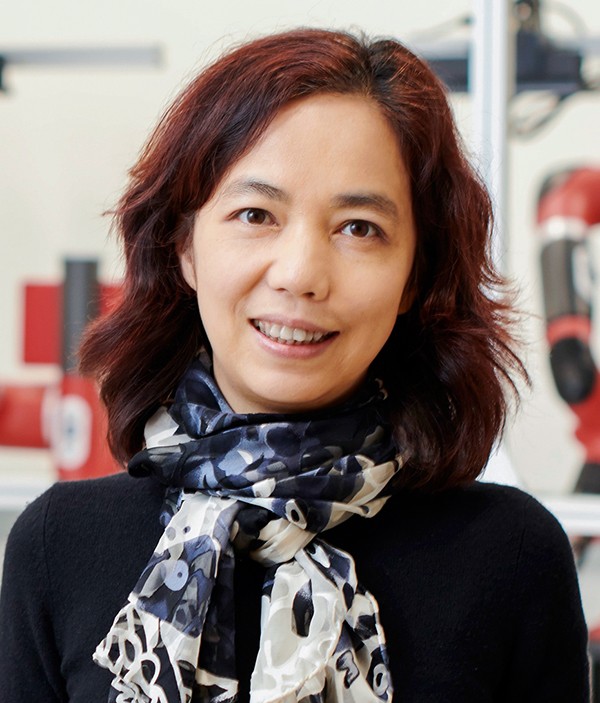Computer scientist to give lecture on AI in health care
By Sherri Negrea
Infections acquired in hospitals kill three times as many people as car accidents every year in the United States.
That statistic drove Fei-Fei Li, the Sequoia Professor in the Computer Science Department at Stanford University, to investigate whether computer vision, a field of artificial intelligence that allows machines to see and understand the visual world, could tackle this problem.
Improving patient safety in health care is one of several applications of AI that Li, co-director of Stanford’s Human-Centered AI Institute, will discuss in the annual Cornell Center for Social Sciences (CCSS) Distinguished Lecture in the Social Sciences on Oct. 5 at 4:30 p.m.in Statler Auditorium.
Her talk, “What We See and What We Value: AI with a Human Perspective,” is co-sponsored by the Cornell Ann S. Bowers College of Computing and Information Science and the Center for Data Science for Enterprise and Society.
Li’s research, conducted at the Lucile Packard Children’s Hospital at Stanford, found that sensors could detect whether hospital staff had used a hand hygiene dispenser before entering a patient’s room – an essential practice in preventing hospital-acquired infections – as accurately as human observers could.
“Fei-Fei Li is a visionary researcher who has been deeply influential in the fields of computer vision and artificial intelligence,” said Kavita Bala, dean of Cornell Bowers CIS. “As co-director of Stanford’s Human-Centered AI Institute, Fei-Fei continues to lead the community’s thinking on where AI is heading in this time of fast innovation.”
Peter Enns, the Robert S. Harrison Director of CCSS and professor in the College of Arts and Sciences and the Cornell Jeb E. Brooks School of Public Policy, added that Li is a pioneer in the data archiving space and a leading national voice for advocating for diversity in STEM and AI. She has also worked with policymakers nationally to ensure the responsible use of technology.
One of Li’s best-known projects is ImageNet, a database credited with revolutionizing AI research that she developed as a computer science professor at University of Illinois Urbana-Champaign. Li proposed building a dataset that would map out all of the world’s objects to help computers to recognize images. Today, the dataset, published in 2009, has more than 14 million images.
After joining the faculty at Stanford, Li took a two-year sabbatical to become vice president of Google and chief scientist of AI/ML at Google Cloud. While at Google, she led efforts to democratize AI technology and develop AI tools to improve health care.
In 2015, Li co-founded a three-week residential program in AI education and research to encourage girls in STEM. Two years later, that project evolved into AI4ALL, a program supported by Melinda Gates, which offers AI summer sessions on college campuses for high school students.
The CCSS Distinguished Lecture in the Social Sciences brings eminent thinkers to Cornell to address the campus and Ithaca community on pressing social issues. Past speakers include Raj Chetty, Isabel Wilkerson, David Lazer, Mahzarin Banaji, Dorothy Roberts and Matthew Desmond.
For more information about the lecture, please contact socialsciences@cornell.edu.
Sherrie Negrea is a freelance writer for the Cornell Center for Social Sciences.
Media Contact
Get Cornell news delivered right to your inbox.
Subscribe

